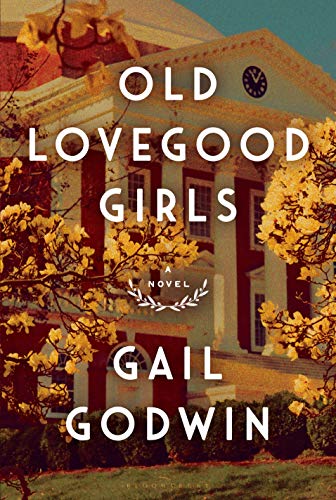Old Lovegood Girls
Beautifully evoking a longtime friendship’s transformative power, Godwin traces two women’s intellectual development and life decisions, and how they intertwine, across four decades.
In 1958, Meredith Grace (“Merry”) Jellicoe and Feron Hood are matched as roommates at Lovegood College, a two-year school for women in North Carolina. The daughter of tobacco farmers, Merry has a welcoming personality, and the college dean, Susan Fox, believes she’ll be a comforting influence on the guarded Feron, who had a troubled home life. She’s right. The two become close; both are talented writers, sharing deep conversations on literary approaches and reading each other’s stories. Envious of Merry’s writing fluency, Feron feels she can do even better and uses this emotion to push herself forward.
Old Lovegood Girls focuses on connections rather than competition, though, and in this and other aspects, it gracefully subverts the tropes that pervade fiction about women. Likewise, Lovegood College, one of those old-fashioned, rigid-seeming institutions with longstanding rituals and values, breaks away from stereotype. Dean Fox, for example, is a wonderful character, an open, nurturing administrator with a full inner life. After the girls’ first semester, tragedy forces Merry to return home and take up family responsibilities. She and Feron correspond sporadically and rarely meet, but their friendship is of the type where they know each other’s qualities so well (they stay in each other’s “reference aura,” as Feron expresses it) that they rely on each other as guides through life.
With an unhurried pace that enables characters to develop and mature, the story delves with eloquent wisdom into a wide swath of issues: love, grief, family relationships, the value of storytelling, even (in a way that feels slyly meta) the challenges of writing historical novels. It’s a fine example of introspective fiction, and an ideal read for these uneasy times.










